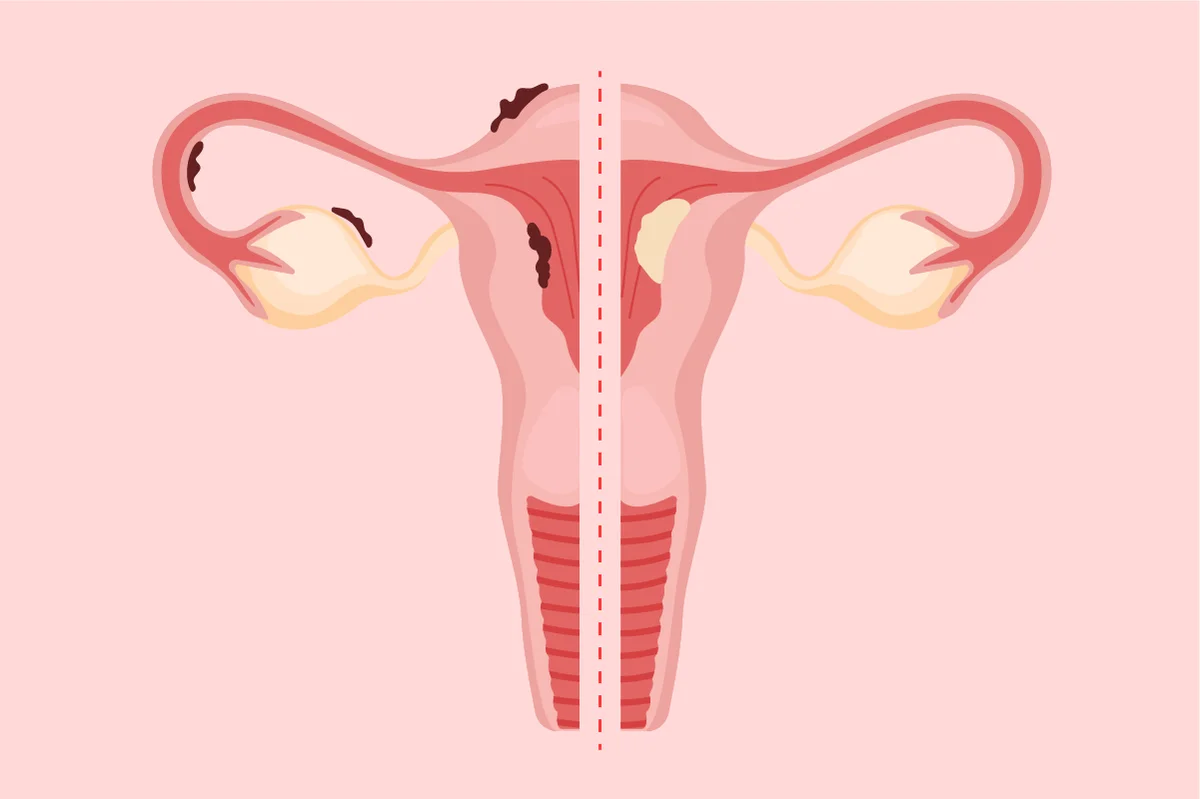Endometrial Cancer Surgery
Endometrial Cancer
Endometrial cancer surgery, led by Dr. Priya Bansal, involves the removal of cancerous tissue from the lining of the uterus. This surgery may include procedures such as hysterectomy (removal of the uterus) and, depending on the extent of the cancer, may also involve removing tissues or lymph nodes.
Endometrial Cancer
- Endometrial cancer is the cancer of the lining of the uterus and is the most common malignancy of the female genital tract in the western world.
- Fourth most common cancer after breast, lung, colorectal cancer
- Mostly caused by sporadic mutations
Risk Factors :
- Obesity
- Early menarche, late menopause
- Unopposed estrogen exposure
- PCOD
- Estrogen-secreting tumors
- Tamoxifen therapy
- HPNCC
- Nulliparity
- Diabetes mellitus
- Hypertension
- Previous RT
Symptoms
- Abnormal vaginal bleeding-90% patients
- Postmenopausal bleeding
- Intermenstrual bleeding
- Heavy and prolonged periods
- Purulent vaginal discharge
Causes Of Post-Menopausal Bleeding
| CAUSE | %AGE |
|---|---|
| EXOGENOUS ESTROGEN | 30 |
| ATROPHIC ENDOMETRITIS/VAGINITIS | 30 |
| ENDOMETRIAL CANCER | 15 |
| ENDOMETRIAL/CERVICAL POLYP | 10 |
| ENDOMETRIAL HYPERPLASIA | 5 |
| MISCELLANEOUS | 10 |
Diagnosis
- Office endometrial biopsy with endocervical curettage (false negative rate – 10%)
- Hysteroscopy and directed biopsy
Surgical Management
- Hysterectomy with BSO and surgical staging
- Sentinel lymph node to be done in uterine confined low and intermediate risk histology.
- Visual inspection of peritoneal, diaphragmatic and serosal surfaces with biopsy of any suspicious lesions
- Peritoneal cytology should be collected and reported (does not affect staging)
- Omental biopsy (deeply invasive, high-grade endometrioid adenocarcinoma and carcinosarcoma). If grossly normal (5x5 cm), biopsy taken
- If high-risk histology, then complete pelvic and retroperitoneal lymph node dissection
- Excision of suspicious and enlarged lymph nodes in pelvic and retroperitoneal region
Minimally Invasive Surgery
- A randomized, phase III trial conducted by the Gynecologic Oncology Group (LAP2) compared laparoscopy versus laparotomy stage I to IIA uterine cancers
- Results: morbidity is lower MIS and survival and recurrence rates do not differ greatly.
- Robotic surgery is FDA approved for ca endometrium
Adjuvant Therapy
May be required in select cases depending upon the final histopathological evaluation.

